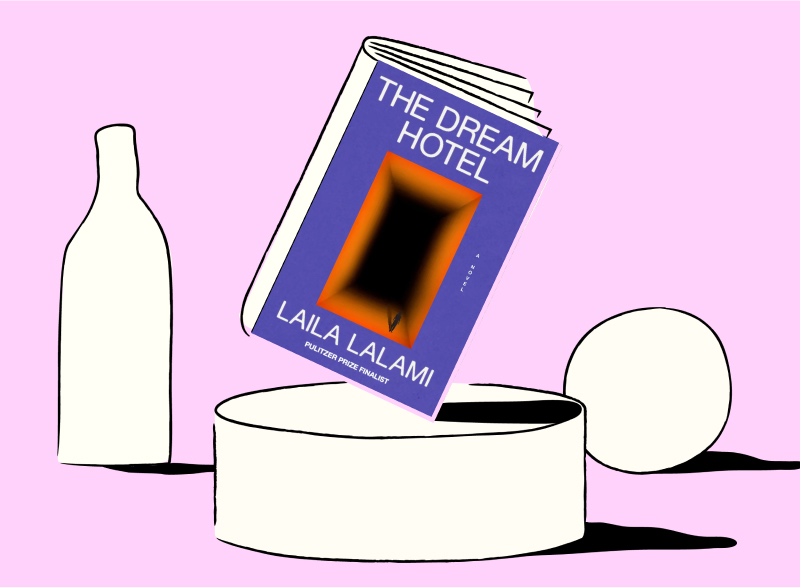- New Arrivals
Fiction
- Historical FictionCrime & ThrillersMysteryScience-FictionFantasyPoetryRomanceChildren’s BooksYoung Adult
- Biographies & MemoirsHistoryCurrent AffairsTech & ScienceBusinessSelf-DevelopmentTravelThe ArtsFood & WineReligion & SpiritualitySportsHumor
Children’s Books
Lists
Blog
Gift Cards
My Lists
Games
The co-op bookstore for avid readers
The Must-Read Dystopian Novel of 2025: The Dream Hotel by Laila Lalami
Imagine stepping off a plane and being arrested—not for something you’ve done, but for something an algorithm says you will do. In Dream Hotel (out March 4), the latest novel from Pulitzer Prize and National Book Award finalist Laila Lalami, this nightmare becomes reality.
When a woman lands at LAX, agents detain her based on a chilling prediction: their dream-surveillance algorithm shows she will harm her husband. Confined to a retention center for "observation," she joins other women also held captive by their own dreams. As their stays extend with each rule violation, the arrival of a mysterious new resident forces a confrontation with the corporations that have turned dreams into data.
Dream Hotel has been named a Most Anticipated Book of 2025 by TIME Magazine, The Washington Post, The New York Times Book Review Podcast, Esquire, Marie Claire, The National, and many more. The novel has received starred reviews from Kirkus, Publishers Weekly, and Booklist, with critics particularly noting its realistic portrayal of the dangers of surveillance technology. Publishers Weekly draws parallels to Philip K. Dick's The Minority Report but emphasizes Lalami's "chillingly original" take, while Kirkus praises how the Moroccan novelist "builds a convincing near-future dystopia out of current events."
We were honored to have the book's acquiring editor, Naomi Gibbs, discuss this chilling and timely novel in our latest Tertulia's First Dibs Editors Salon—our exclusive preview of the season’s must-read books— read on for her personal note:
Editor's Note
By Naomi Gibbs, Executive Editor at Pantheon Books
I imagine some readers are already familiar with the great Laila Lalami. Her third book, The Moor’s Account, was a Pulitzer Prize finalist. Her fourth book, The Other Americans, was a National Book Award finalist. And with The Dream Hotel, her sixth book, we believe she’s ready for a whole new level of success—I’m thrilled it will be in readers’ hands soon.
What struck me first about this propulsive, prescient novel is how relatable it is, how chillingly easy to imagine. A new mother, exhausted, tries a popular technology, a brain implant that regulates your sleep cycle, allowing (finally!) for a full night’s rest. She’s so desperate, of course she doesn’t read the fine print in the terms of service. Who does that anyway?
And here Laila imagines our reality to a new extreme—what if it wasn’t just the things we buy, the places we go, the people we talk to, and the articles we read that were being tracked, but our dreams. What if our dreams were being used as evidence against us? The book follows Sara, the protagonist, through an existential nightmare so dizzying it would make Kafka shudder. Her quest to exonerate herself is completely immersive and, at every step of the way, probes urgent questions of autonomy, surveillance, and our slippery, seductive relationship with technology. By the time you turn the final page, I am confident that The Dream Hotel will change your perspective, in the way that only the work of a master thinker and writer can.

